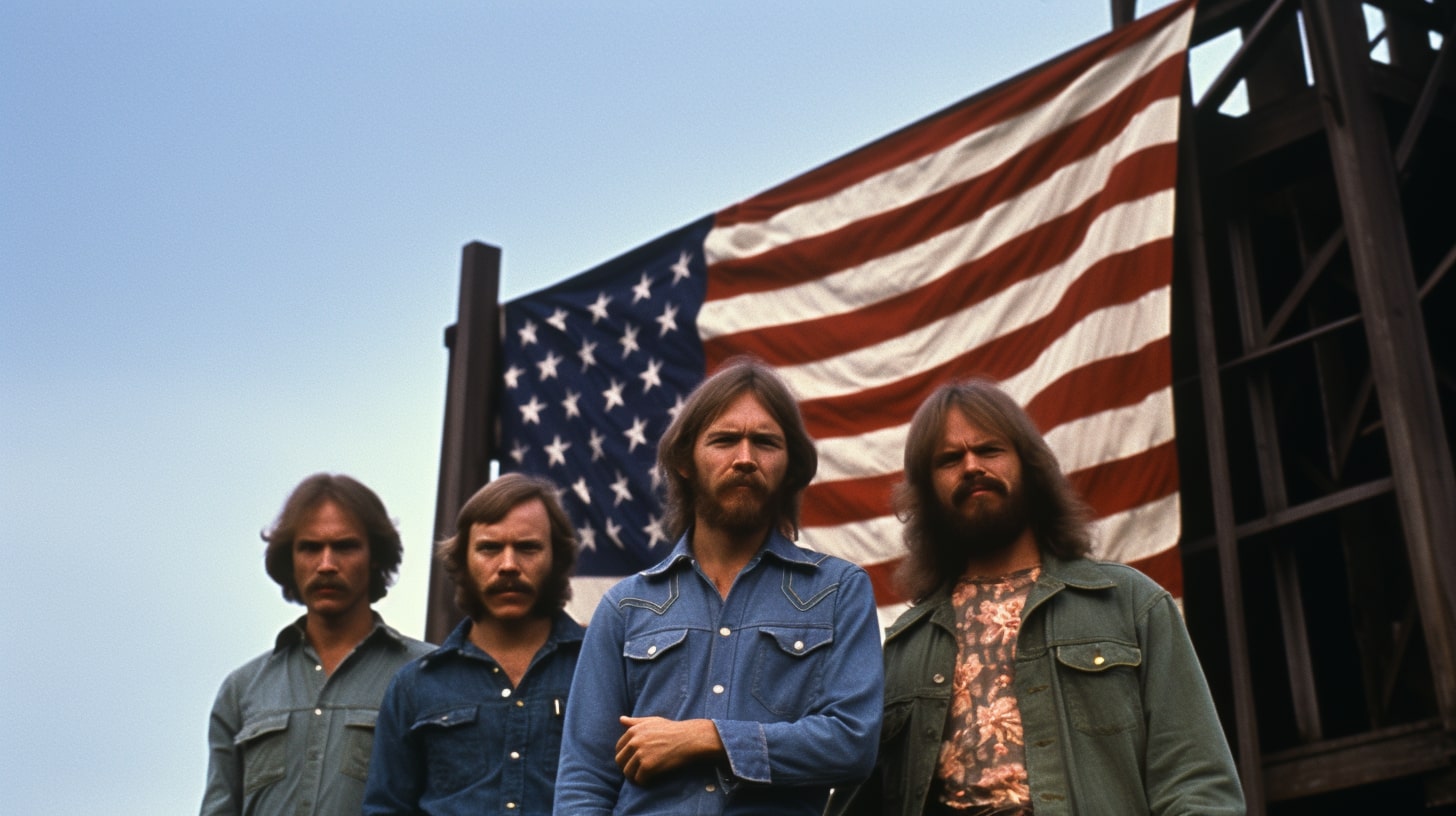 SAN FRANCISCO, October 16, 1972 — In a shocking turn of events, Creedence Clearwater Revival (CCR), one of America’s most successful and beloved rock bands, has officially announced their breakup.
SAN FRANCISCO, October 16, 1972 — In a shocking turn of events, Creedence Clearwater Revival (CCR), one of America’s most successful and beloved rock bands, has officially announced their breakup.
The split comes after months of mounting tension and internal strife, culminating in a bitter feud that has torn apart the group responsible for some of the most enduring hits of the late 1960s and early 1970s.
Creedence Clearwater Revival, known for chart-topping singles like “Proud Mary,” “Bad Moon Rising,” and “Fortunate Son,” was a band that defined the sound of an era. With their unique blend of rock, blues, and Southern-inspired swamp rock, CCR captured the spirit of a generation and became a symbol of the turbulent times. But behind the scenes, the band’s success was marred by growing conflicts, primarily between frontman John Fogerty and the other members of the band—his brother Tom Fogerty, bassist Stu Cook, and drummer Doug Clifford.
The rift within the band had been simmering for some time, with creative differences at the heart of the discord. John Fogerty, the band’s primary songwriter and creative force, exerted significant control over CCR’s music, leading to frustration among the other members who felt increasingly sidelined. Tom Fogerty, in particular, struggled with the dynamic, feeling overshadowed by his younger brother’s dominance. This tension led to Tom’s departure from the band in 1971, but the underlying issues remained unresolved.
The final blow came during the recording of their last album, Mardi Gras, released in April 1972. Unlike previous albums where John Fogerty took the lead on songwriting and production, Mardi Gras was intended to be a more democratic effort, with Cook and Clifford contributing their own songs and taking on more prominent roles. However, the album’s reception was lukewarm, with critics and fans alike sensing the disjointed nature of the record. The album’s failure only exacerbated the tensions within the band.
As the year progressed, the situation deteriorated further, with heated arguments and disagreements becoming a regular occurrence. According to insiders, the band members could barely stand to be in the same room together, let alone collaborate on new music. The final decision to disband was made during a particularly contentious meeting where it became clear that reconciliation was impossible.
In a statement released to the press, the band announced their breakup, citing “irreconcilable differences” as the reason for their split. The statement expressed gratitude to their fans for their unwavering support but offered little hope for a reunion in the future. “We’ve reached a point where continuing as a band is no longer possible,” the statement read. “We will each be pursuing our own paths from here on out.”
The breakup of Creedence Clearwater Revival has sent shockwaves through the music industry, with fans mourning the loss of a band that had such a profound impact on rock music. John Fogerty, who had often been seen as the driving force behind CCR, is expected to embark on a solo career, though it remains unclear what direction he will take. Cook and Clifford, too, are anticipated to continue in music, though whether they will collaborate again remains to be seen.
As the dust settles, the legacy of Creedence Clearwater Revival will undoubtedly endure. Their music, with its raw energy and poignant lyrics, remains a timeless reflection of the era in which it was created. But the band’s breakup serves as a stark reminder of the personal and creative tensions that can exist even within the most successful groups.
For now, the story of Creedence Clearwater Revival ends on a bittersweet note—a tale of immense talent and success overshadowed by internal strife and the eventual dissolution of one of rock’s greatest band